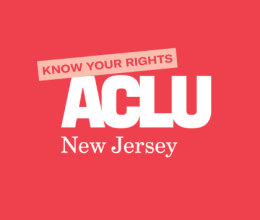
The ACLU of New Jersey today celebrates Governor Murphy’s announcement of six commutations under the organization's Clemency Project, an initiative to encourage the use of categorical clemency to examine holistic injustices that have impacted groups of people and consider relief for each person within the identified class. Five individuals will be released from state prison as a result of this second round of commutations. In addition, Governor Murphy granted pardons to 87 people. Today’s announcement marks 129 people granted clemency under Governor Murphy. New Jersey governors issued a total of only 105 pardons and commutations between 1994 and December 2024.
“With the commutations and pardons announced today, Governor Murphy has granted clemency to more people than all New Jersey governors since 1994 combined, and demonstrated that our state truly values second chances,” said ACLU-NJ Executive Director Amol Sinha. “Today also marks the first time several of our clients have been released with consideration given to the extreme trial penalties they faced. This is an important step in addressing the harms perpetuated by the criminal legal system. We’re grateful for Governor Murphy’s leadership and hope he continues to grant clemency until the end of his term.”
Under the Clemency Project, the ACLU-NJ has retained 90 clients who are currently incarcerated and who are survivors of domestic violence or who are serving sentences impacted by extreme trial penalties – a reference to people who are serving significantly longer sentences because they opted to exercise their constitutional right to a trial rather than agreeing to a prosecutor’s plea offer. Four of the ACLU-NJ's clients were granted clemency today and will have their sentences commuted: Rashon Barkley, Paige Pfefferle, Alberto Salazar, Michelle Tierney.
Mr. Barkley was arrested when he was 18 years old and offered a plea deal to serve a 10-year mandatory minimum for felony murder. After exercising his right to a fair trial where he was found guilty, Mr. Barkley received an aggregate sentence of life in prison with a 50-year mandatory minimum, resulting in an extreme trial penalty of a 40-year mandatory minimum. “Giving me the opportunity in this lifetime to redeem myself for what I have done will mean so much to me, it will not only give me a second chance at life, but it will give me the opportunity to show that rehabilitation is real,” said Rashon Barkley.
Ms. Pfefferle, a survivor who defended herself against her abuser when she was 19 years old, was convicted for the killing of her high school boyfriend. She was sentenced to 30 years. “I’m grateful to be granted clemency so I can advocate for those who suffer from mental health issues and women and young girls who are survivors of domestic abuse,” said Paige Pfefferle.
Mr. Salazar rejected a plea deal for 19 years of incarceration for felony murder. Maintaining his innocence, Mr. Salazar went to trial where he was found guilty and sentenced to 30 years, resulting in a trial penalty of 11 years. “I thank Governor Murphy for this second opportunity because after being incarcerated for more than 24 years, I have changed a lot. And at the age of 73, I don’t have much time to give back to my family,” said Alberto Salazar.
Ms. Tierney, a survivor who defended herself against her abuser with a knife, resulting in his death, was sentenced to 30 years in prison after a jury rejected her defense. “Trusting my lawyer, I went to trial and received a 30-year mandatory minimum sentence. Had I taken the 20-year plea, I would've been released 10 years ago. I’m grateful that Governor Murphy recognized the injustice of my case and provided me with this opportunity for a second chance,” said Michelle Tierney.
“We thank Governor Murphy for continuing to leverage the power of clemency to ensure that New Jersey lives its values of justice for all,” said ACLU-NJ Director of the Clemency Project Rebecca Uwakwe. “By prioritizing decarceration in this way, our state has shown that clemency is about so much more than mercy – it's a second chance at freedom.”
The ACLU-NJ launched the Clemency Project to mitigate injustice and reconnect people who are incarcerated with their families and communities. The Project celebrated the Governor’s first issue of pardons and commutations in December 2024, which included the release of three of the ACLU-NJ's clients from state prison.
New Jersey has the nation’s highest racial disparities among its prison population, which makes categorical clemency an invaluable tool that is fundamental to racial justice and essential in repairing the harms of mass incarceration. The ACLU-NJ is dedicated to continuing New Jersey’s decarcerative success and building a fairer, more equitable future for all.

